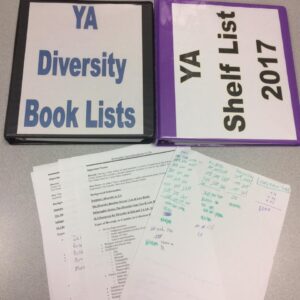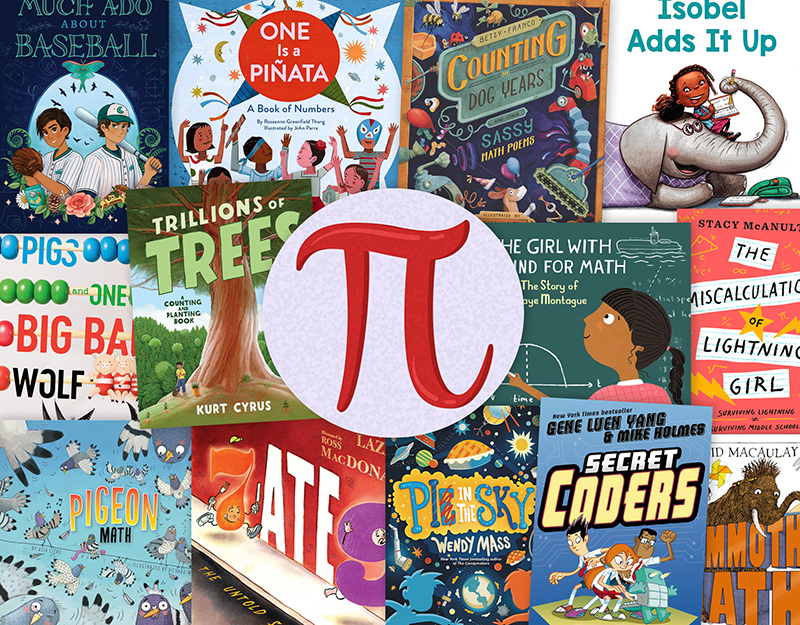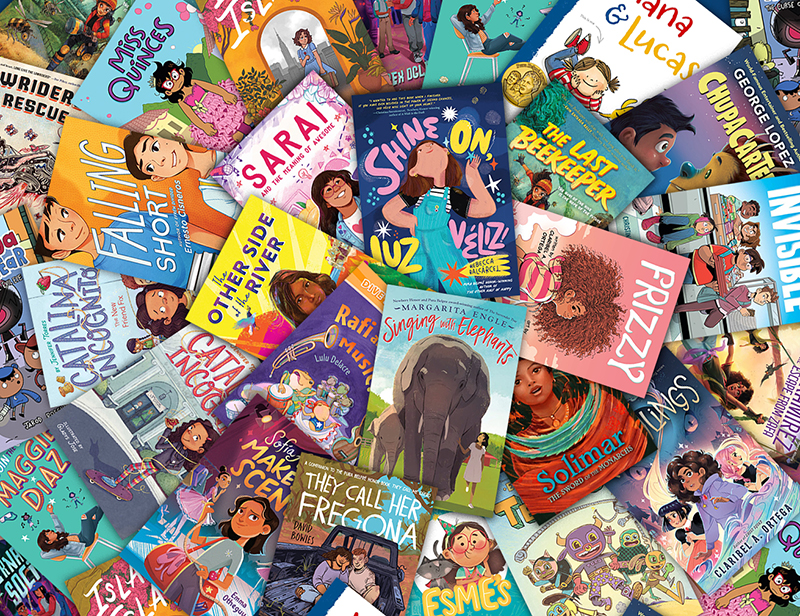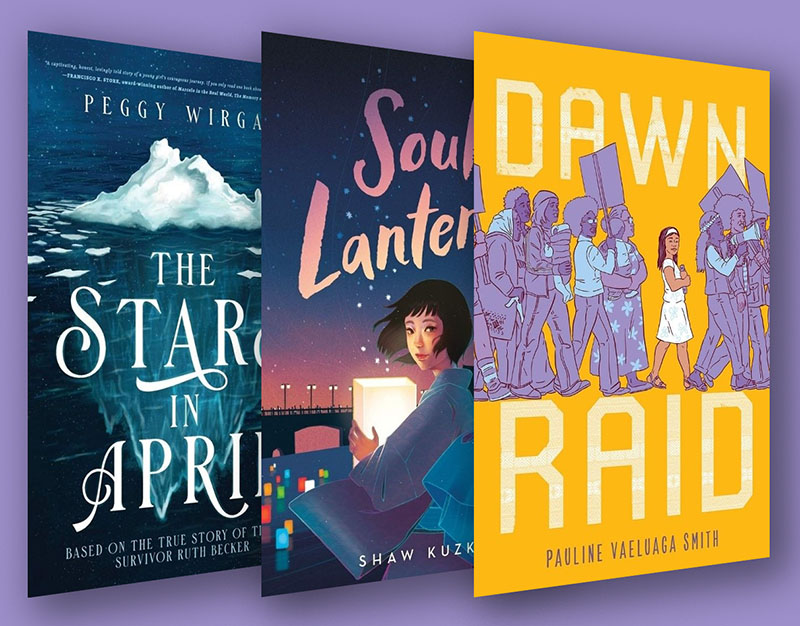A Wrap Up: Doing a Diversity Book Audit, more thoughts
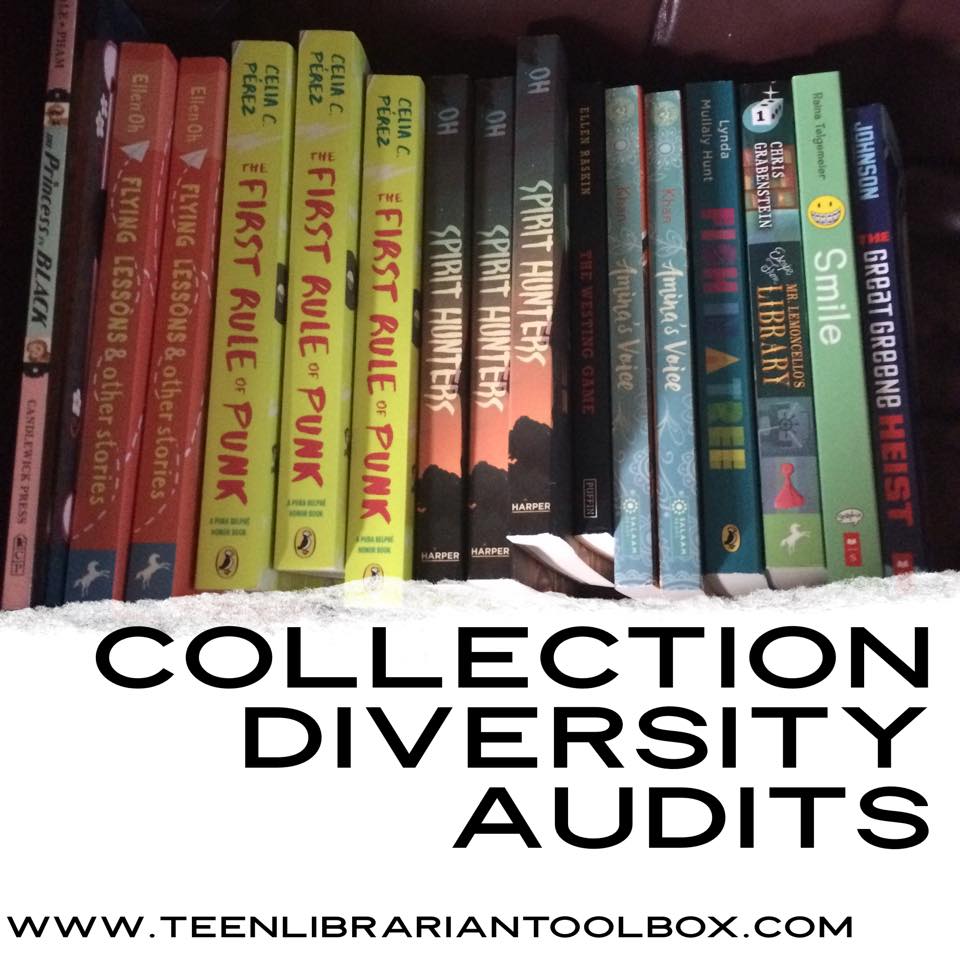
Yesterday I was honored once again to present with School Library Journal about doing a diversity book audit. As always, there are questions afterwards which make you think about what you might do differently the next time. Here are some thoughts I had afterwards based on follow-up questions.
Hello, I just had the honor of doing a presentation on doing a diversity audit for a library collection for @sljournal and you can find a recap here: https://t.co/WQaWPwipW6
— TeenLibrarianToolbox (@TLT16) February 28, 2018
But I also have some additional thoughts . . .
Search out tags like #OwnVoices and follow places like Gay YA, We Need Diverse Books, Lee and Low, Epic Reads and Book Riot (and – dare I say it – TLT) to find diverse recs and buy them.
— TeenLibrarianToolbox (@TLT16) February 28, 2018
If you find the thought of a formal collection audit overwhelming, sit down in front of a part of your collection with a piece of scrap paper and pen and make hash marks. Do a small section. If you do a range of shelves or a small % of your collection you get an idea to start.
— TeenLibrarianToolbox (@TLT16) February 28, 2018
You could also get data from your ILS using a combination of call numbers – for a type of material, say picture books or J Fic – and category headings – like Native Americans, Fiction – to get an idea of what holdings you have and again, extrapolate that data.
— TeenLibrarianToolbox (@TLT16) February 28, 2018
I found a method that works for me. It was not the first method I tried, I scrapped it and started over. You'll have to tweak your method to fit your needs, but the general idea is you want to come up with numbers that help you analyze the diversity of your collection.
— TeenLibrarianToolbox (@TLT16) February 28, 2018
you need to work on filling gaps to build a more inclusive collection.
— TeenLibrarianToolbox (@TLT16) February 28, 2018
One of the topics that comes up frequently is that many people are overwhelmed with the thought of doing an audit for a larger collection. I think there are some ways that this can be done.
ADVERTISEMENT
ADVERTISEMENT
1. Do an audit of randomized samples of your collection and extrapolate the data
When you hear poll results, those polls have not actually polled all the millions of people that live in the United States. They poll a randomized sample of the population and extrapolate the data. We can do the same for our collection audits. Take randomized samples of a larger collection to get an idea, generally, of whether or not your library system is truly acquiring an inclusive collection.
2. Instead of looking at titles, look at subject headings.
You should be able to run a report of the number of titles in various subject headings from your collection. Compare this number to the overall total number of items that you hold in that collection. For example, here are a variety of GLBTQAI+ subject headings. Do a search of your ILS and find out how many titles come up for each of these subject headings. Compare that number of titles to the over all number of titles in your collection to determine whether or not you have very many GLBTQ titles in your collection or if you need to fill some gaps.
3. If you want to examine specific types of diversity, start with a comprehensive book list and see how many titles you have off of that list
This is how I first started doing a diversity audit of my collection. It’s not a comprehensive audit because the book lists you find online won’t list everything that is available, but it does give you a general idea of the state of your collection. I actually began with GLBTQ titles because many of our teens that come to the library regularly identify as such and were telling me we needed more titles. My quest began because my teens were requesting more GBLTQ titles. So I went to a resource I knew to be comprehensive, GAY YA, and began checking to see how many of the titles they recommended were owned in my library collection. So this is one approach that you can use to evaluate specific areas. It is made easier by the recent proliferation of lists being shared today online for various types of YA.
4. If you do storytimes or curate summer reading book lists, you’ll definitely want to do a diversity audit of those to make sure you are reading, sharing and recommending diverse titles
ADVERTISEMENT
ADVERTISEMENT
5. Even if you don’t start with a baseline and do a complete audit of your collection, start doing a mini audit of each book order so you know moving forward that you are purchasing diverse titles. Don’t go with your gut or assume you’re doing a good job, but be intentional and audit each book order. I print off each book order and make a notation in the margins of what type of diversity each title has. If you don’t have very many books with notes in the margin, think about how you can re-adjust each individual book order so that you are consistently and systematically building a diverse/inclusive collection.
Doing an audit, whichever way you choose to do it, gives us the data we need to be more intentional in our library purchasing and acquisitions. It takes helps decrease our tendency towards implicit bias and make us really confront data to determine whether or not we are truly and intentionally building diverse collections. As an added benefit, it makes us more familiar with our collections and better at doing things like RA and book displays. Diving deeply into your collections is never a bad thing.
After a few false starts I developed a way that allowed me to save a comprehensive shelf list that let me know more about the books on my shelf into an excel spreadsheet. Each time I choose to do a new audit, I can simply ask my ILS to create a new shelf list for me of titles purchased since the date of my last audit, so I don’t have to go back and start from scratch. It’s simply more data for me to work with when weeding, purchasing, and recommending books to and for my teens. The initial work was more time consuming, but the additional work is less so. I know my collection better, I’m better at serving my teens, and I’m making sure that they have a wide variety of stories to read that helps to make them better informed, compassionate and engaged human beings. At the end of the day, I feel that is a core value of my job: providing my teens with the best YA collection that I can to give them the greatest amount of access that I can.
What works for me may not work for you, and that’s okay. But I hope that you will use this information and the information that I found on my quest to develop a way that works for me, to find a way that does work for you. In the end, we all have the same goals: to build the best collections to serve our communities.
Filed under: Things I Never Learned in Library School
About Karen Jensen, MLS
Karen Jensen has been a Teen Services Librarian for almost 30 years. She created TLT in 2011 and is the co-editor of The Whole Library Handbook: Teen Services with Heather Booth (ALA Editions, 2014).
ADVERTISEMENT
ADVERTISEMENT
SLJ Blog Network
2024 Books from Pura Belpré Winners
In Memorium: The Great Étienne Delessert Passes Away
Winnie-The-Pooh | Review
Parsing Religion in Public Schools
ADVERTISEMENT


